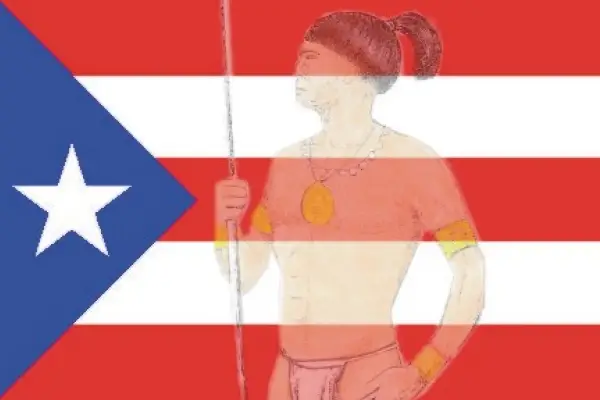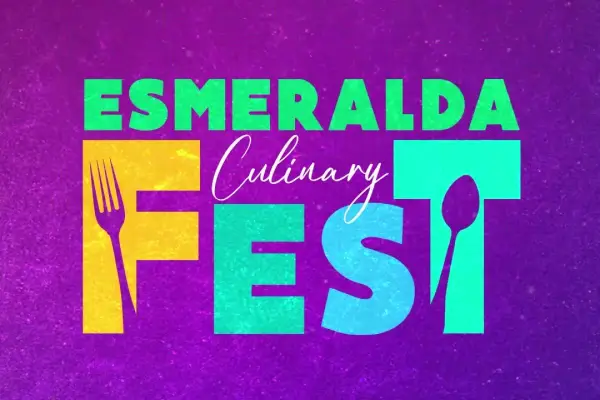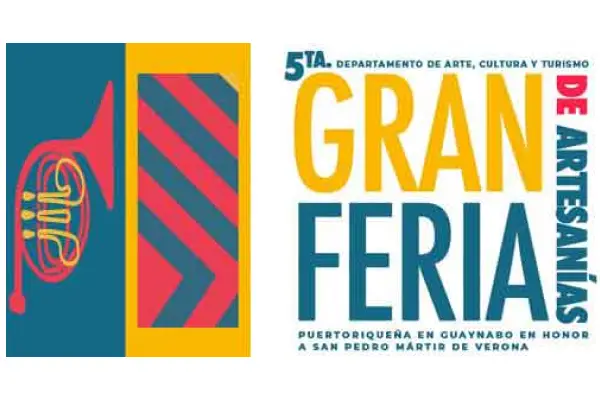Arts and Culture
Arts and Culture Programs
Luis A. Ferré School of Fine Arts of Guaynabo
As part of the commitment to cultural promotion, this modern specialized school was built. There, more than 500 children and young people are disciplined in subjects such as music, dance, theater and drawing. A scholarship program is maintained to subsidize the education of students with limited economic resources. It has a theater that will soon be able to resume its functions. It has a capacity for 550 people including accommodation facilities for people with physical disabilities.
In the Amelia community, for more than half a century, every year in November, the beating of the drums, the percussion and the fluttering of the skirts that give the community its musical flavor. Bomba, Plena and Salsa Festival at the Amelia Water Frontlocated in the coastal area of Guaynabo and adjacent to the town of Cataño.
The musical offer is an example of a gathering of the highest caliber of Afro-Caribbean music where attendees connect with our roots.
Nothing, not even the rain, can stop the joy and positive energy transmitted by the music and the festive atmosphere offered by the Bomba, Plena & Salsa Festival at the Amelia Water Front since it was established in the 1970s.

The Mabó Carnival began to be celebrated in 1976 when a group of friends of the Mabó Recreational Fraternity gave free rein to the activities of Guaynabo's patron saint festivities including a Noche de Brujas, the grease-covered "palo encebao" to reach the flag and other creative events.
Thus, little by little, an intense weekend of festivities between laughter and mischief, was taking on the nuances of a carnival.
Hoy día, y con sobre 40 años, el Municipio de Autónomo de Guaynabo, la Oficina de Arte y Cultura y varios ciudadanos participan de la organización del Carnaval. Asimismo, año tras año esta ciudad reconocida por sus servicios cinco estrellas se alista para la festividad más pintoresca y tradicional, el Carnaval Mabó.
Nowadays, Carnival features a series of celebratory events related to typical Carnival activities, beginning on or after the Christian feast of the Epiphany and ending days before Ash Wednesday, depending on that year's calendar.
During the three-day celebration, more than 30 local artisans and artisans from the Department of Corrections and Rehabilitation will participate.
According to the story, during the Thirty-second edition, the organizers transformed the Saturday of Carnival into what, from that year on, will be known as the Cuesta del Río Street Festival to celebrate "El Festival de la Patita de Cerdo".
Hundreds of people gather in the center of Guaynabo to taste and eat the largest stew of paw paws, free of charge.
Originally in the Cuesta del Rio, which holds one of the most remembered stories of the town, and next to the old Mayor's Office, over 20 tents were set up for the cooks, who competed for the best flavor, presentation and decoration.
Among the 40 chefs competing are Guaynabo neighborhood groups, Carlitos Bowl, who cooks a 1,000-pound stew of ducklings.
The five-star city has been the main stage for culinary competitions, parade of floats and comparsas and a luxury artistic show with the closing of the best salsa orchestras of Puerto Rico and the Dominican Republic.
Children and adults also enjoy music, live entertainment, the traditional machinas, spades and bets on the racehorses, and a variety of food and beverage kiosks.
And as is customary, once the music is over, the Burial of the Sardine will be performed by a group of Guaynabeños as a symbol of the end of the carnival events.
Mabó was a good provider for his people, a good farmer and had very good skills that allowed him to be the leader of his "Yucayeque", the town known today as Guaynabo.
In pre-Columbian times, cacique was a leader of an indigenous group, derived from the Taino word kasikɛ for pre-Columbian tribal chiefs in the Bahamas, Greater Antilles and northern Lesser Antilles.


In order to promote the economic and tourism development of Esmeralda Avenue in Guaynabo, the municipal Office of Economic Development along with the Office of Press and Communications, the Office of Arts and Culture, and a group of restaurants, bars and small merchants in the area, joined together to celebrate the first Esmeralda Culinary Fest 2023.
Avenida Esmeralda, considered the main gastronomic center of Guaynabo, is nourished by more than 30 restaurants of Creole food and Puerto Rican, Italian, Mexican, Cuban, Peruvian, Colombian, Asian and fusion cuisine.
It also has other businesses such as bars, bakeries, cake and pastry stores, market square, butchers and other nearby businesses. Visitors have the opportunity to taste the iconic dishes of these establishments in a festive and cozy atmosphere.
In this family event, participating merchants present their best culinary proposals and recipes for the delight of the attendees, who will have the opportunity to get to know each of them and taste their offerings on their own.
In addition, the event will feature live music, crafts and cocktail presentations.
This event hopes to establish Emerald Avenue as one of the most popular dining destinations in the metro area and the Caribbean.
Residents and visitors to Guaynabo have the opportunity to enjoy a unique gastronomic experience that promises to delight the most demanding palates and stimulate economic development in the southern part of the city.
With the participation of more than thirty restaurants and local businesses, the Pa'l Campo Culinary Fest was held for the first time in May 2024 at the 834 Municipal Expressway and became a culinary experience that reflects the diversity and gastronomic talent of Guaynabo. From exquisite gourmet creations to traditional dishes, with options for all tastes.
In addition to the gastronomic offerings, the event will feature the presence of talented local artisans, who will exhibit their works in tents dedicated to the sale and exhibition. This initiative seeks not only to support the gastronomic sector, but also the artisan community of Guaynabo.
In this, its first year, special activities were scheduled for the little ones, including a fun Children's Circus Show and Bomba classes, ensuring that the whole family can enjoy this special day.

The Autonomous Municipality of Guaynabo celebrates the feast of the city's patron saint, San Pedro Mártir de Verona with an annual edition of the Guaynabo Artisans Fair, usually held on the last weekend with the participation of about 100 artisans.
This Fair is an event coordinated by the municipality of Guaynabo, its Office of Arts and Culture, Economic Development, and the Press and Communications Office as part of its cultural tourism program and to promote artisan business development.
